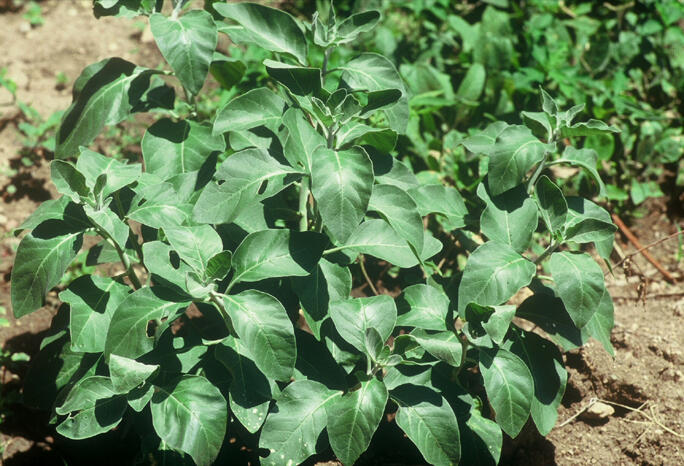Common Name
Botanical Name
The Indian herb ashwagandha (Withania somnifera) is one of the most highly regarded botanicals in the 5,000-year-old system of natural medicine known as Ayurveda.
Considered a rasayan (life extender), ashwagandha root is used with excellent results for overall vitality. In the Indian Materia Medica, which is a compendium of beneficial botanicals, ashwagandha is described as beneficial for general debility, impotence, brain fatigue, low sperm count, nervous exhaustion and in cases in which general vigor needs to be restored.
Ashwagandha, which is an excellent source of antioxidants, is classified as an adaptogen, meaning that it improves the capacity of a person to adapt to environmental, physical and mental changes by modifying the metabolism and other processes in the body. Adaptogens improve cell replenishment, which in turn reduces fatigue symptoms and exhaustion, while increasing the resilience of the body and imparting more stamina for physical activities.
There are different types of energy. A lot of people are hooked on the temporary energy obtained from caffeine. Energy from caffeine comes from the stimulation of the central nervous system. There’s nothing wrong with this, but if you rely on caffeine alone for energy you’ll eventually experience a crash. You can also increase energy by enhancing the body’s own energy-producing mechanisms within cells, notably the primary unit of cellular energy, which is called ATP. And that’s what ashwagandha extract does. It causes the cells in the body to produce more cellular ATP. The result is energy without the jitters.
In a study published in Phytotherapy Research, 25 people were given 300 milligrams of the proprietary ashwagandha extract KSM-66 twice a day, while another 25 participants were given a placebo.
Overall, subjects given ashwagandha extract experienced substantial reductions in blood concentrations of the stress hormone cortisol. This resulted in reduced levels of stress and anxiety and improved energy levels.
There’s a large body of psychiatric science showing that lower stress levels are linked to a decrease in moderate anxiety and depression. Reducing stress liberates energy in the body and has a specific enlivening effect in the brain, relieving mental fog and enhancing mental alertness.
Today, more companies are engaging in human clinical studies to demonstrate efficacy of botanicals. Research on ashwagandha has demonstrated significant benefits from the use of this herb.


